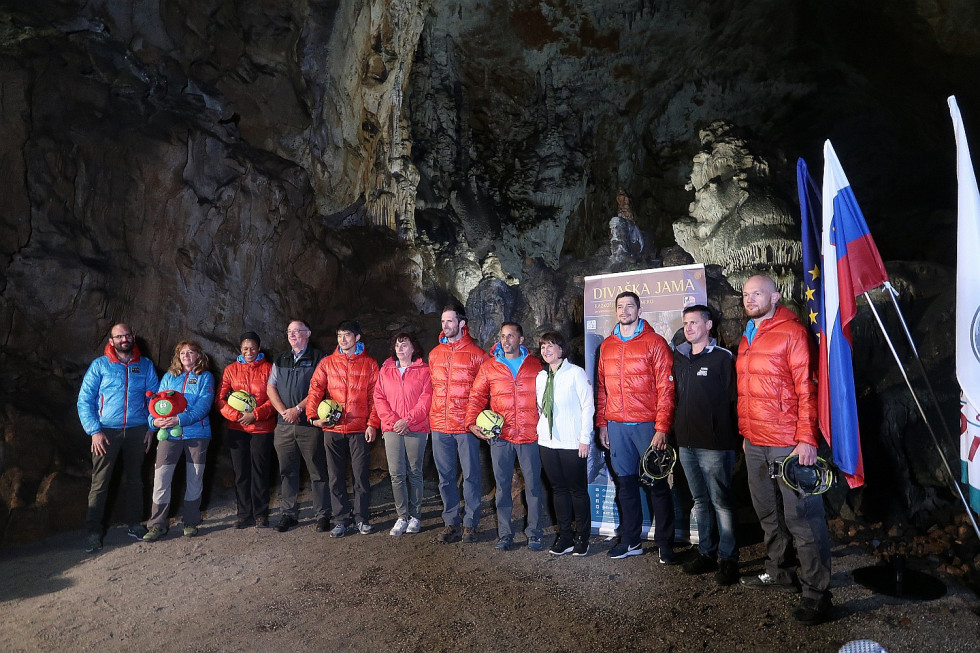Slovenia strengthens its position at the European Space Agency
As part of the CAVES programme, ESA training is taking place with the aim of providing astronauts for future missions with knowledge of geological processes and observation techniques and helping them to develop skills that will enable them to collect samples of water, stone and minerals. Effective communication within the group and with experts outside the cave is also important. During their exploration, the astronauts must be extremely careful as they will be doing their job in an unknown environment without natural light. A training course for astronauts from five space agencies (ESA, NASA, Roscosmos, CSA and JAXA) was held this week in Divača Cave, with the astronauts spending six days underground.
At the closing event, State secretary Eva Štravs Podlogar pointed out that Slovenia’s space sector has grown quickly in recent years as a result of the country becoming an association member of the ESA. At the beginning of 2020, the first two Slovenian satellites will be put into space. The ministry is also drawing up an act regulating the registration of space facilities. “I also believe that this important international event is an excellent opportunity for further international cooperation, for increasing awareness of future space exploration and for spurring institutions and companies on towards new challenges in this field,” said Štravs Podlogar.
Since 2016 the ministry has, in collaboration with the ESA, supported quite a few important commercial projects in the fields of technology, Earth observation and other scientific projects. The astronauts on the training programme were also keen to point out the exceptional opportunity presented by collaboration between the ESA and the ministry, and expressed the hope that training programmes such as the one this week would continue to be held.
The ministry will continue to strengthen its collaboration with the ESA by signing an updated association agreement, cooperating on future Earth observation programmes and taking part in a new optional programme for human and robotic exploration as part of the CAVES programme. The Planica Nordic Centre will be getting a new “human centrifuge” that creates conditions of weightlessness. Slovenia is one of three countries (the other two are France and Germany) in which studies will be carried out to help prepare for manned space missions.


